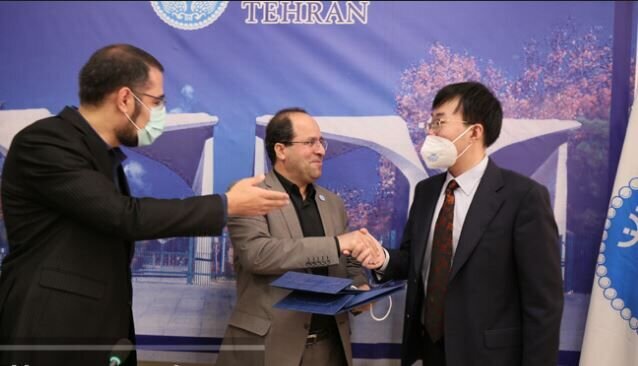Iran proposes hosting association of SCO member universities

TEHRAN – Mohammad Moghimi, the chancellor of the University of Tehran, has proposed setting up the association of prominent universities of the member countries of the Shanghai Cooperation Organization (SCO) in Iran.
The SCO is an intergovernmental organization founded in Shanghai on June 15, 2001. The SCO currently comprises eight Member States (China, India, Kazakhstan, Kyrgyzstan, Russia, Pakistan, Tajikistan, and Uzbekistan), four Observer States interested in acceding to full membership (Afghanistan, Belarus, Iran, and Mongolia), and six “Dialogue Partners” (Armenia, Azerbaijan, Cambodia, Nepal, Sri Lanka, and Turkey).
Moghimi proposed the idea in a meeting with Chinese Ambassador to Iran Chang Hua which was held in Tehran on Monday. The Chinese official announced readiness to share the proposal with relevant departments in China.
Establishing a common scientific information base, awarding scholarships to students of the member countries of the SCO, holding joint courses, and implementing joint research topics and projects are among the goals of pursuing the implementation of the proposal to form a union of prominent universities of the SCO member countries, Moghimi said.
“The proposal will soon be sent to the Chinese Embassy in Tehran and also to the Secretariat of the Shanghai Organization from the Ministry of Foreign Affairs,” he stated.
The University of Tehran has plans to set up a branch in Iraq and Lebanon, he stated, expressing readiness to establish a university branch in China.
Moghimi named China as one of the countries in the priorities of Iran's scientific diplomacy and expressed hope to enhance academic relations between Iranian and Chinese universities.
The history of friendly relations between Iran and China turns back to 2000 years ago and we attach great importance to the teaching of the Persian language in China, Hua stated for his part.
Pointing out the aspects of expanding economic relations between Iran and China in the 25-year agreement, he expressed hope to develop scientific, academic, and cultural relations between the two countries.
Science diplomacy
Despite U.S. sanctions, the international activities of Iranian scientists have increased year by year, so that more than 35 percent of Iranian articles in Scopus have been multi-national projects, Peyman Salehi, the deputy science minister, has said.
In 2021, Iranian scientists published more than 77,000 scientific articles in the Scopus database, so that, Iran has been ranked 15th in science production, he said, IRNA reported.
The country also ranked 15th and 16th in the world in terms of scientific references, he added.
Data from the Scopus International Citation Database show that Iran’s scientific diplomacy has reached more than 34 percent since the beginning of 2021, the highest level in the past 20 years.
Science diplomacy is the use of scientific collaborations among nations to address common problems and build constructive international partnerships.
It is a form of new diplomacy and has become an umbrella term to describe a number of formal or informal technical, research-based, academic, or engineering exchanges, within the general field of international relations.
In 2011, the share of Iranian articles with international participation was about 16.5 percent, which increased to 19.7 percent in 2016 and gradually in the following years, so that in 2020 and 2021, reached 30.5 and 34.2 percent, respectively, he added.
The share of Iranian articles with international participation has had significant growth of 209 percent during an eight-year period (2013-2020), becoming the Islamic world’s leading country in science diplomacy, according to the Scopus International Citation Database.
FB/MG
Leave a Comment